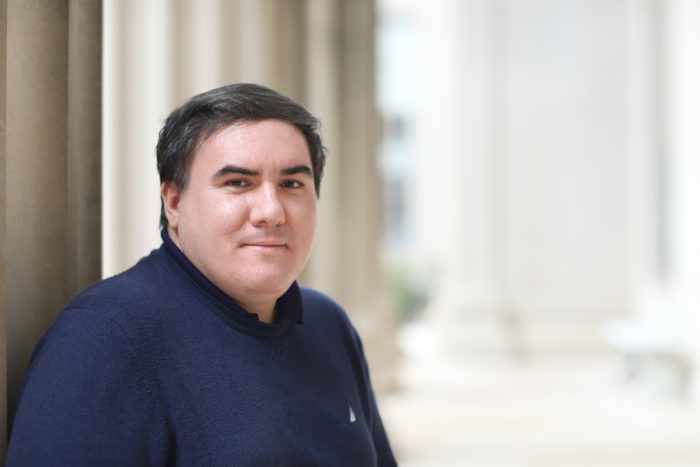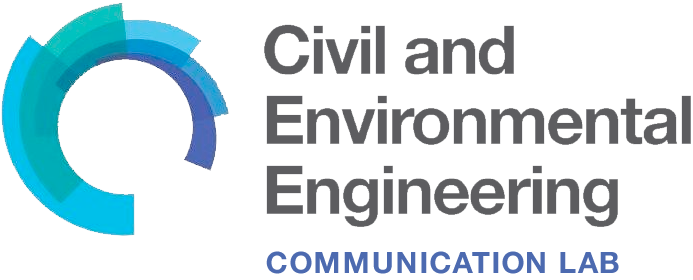After four and a half years (and 158 coaching appointments!), my role as a CEE Communication Fellow is coming to an end. Our Comm Lab manager, Jared, suggested I write up some thoughts on my time in this position, and I considered this an excellent opportunity to say goodbye to the lab and reflect on this experience.
Building something new
 I began in the Spring of 2020 as part of the first cohort of CEE Communication Fellows. The CEE Comm Lab started in April 2020, when the world was just beginning to live through its first pandemic of the 21st century. I didn’t completely understand the Comm Lab’s function at that time, as it was something new for the CEE community. I decided to apply to be a Comm Fellow all the same because I perceived it as a great chance to improve my soft skills (which I heard MIT students lack) while getting more involved with the community. At the end of the first (virtual) meeting with the new Comm fellows, I remember wondering about the difference between the Writing & Communication Center (WCC) and our lab. As the Comm Fellow monthly training workshops went by, I learned that our role was to conduct discipline-specific peer reviews, providing suggestions based on our experience and knowledge of scientific communication – articles, posters, and presentations – while at the Writing Center, they employ staff who provide a Humanities perspective with a focus on grammar and other rhetorical aspects of writing, as well as support for students looking to improve their English language skills.
I began in the Spring of 2020 as part of the first cohort of CEE Communication Fellows. The CEE Comm Lab started in April 2020, when the world was just beginning to live through its first pandemic of the 21st century. I didn’t completely understand the Comm Lab’s function at that time, as it was something new for the CEE community. I decided to apply to be a Comm Fellow all the same because I perceived it as a great chance to improve my soft skills (which I heard MIT students lack) while getting more involved with the community. At the end of the first (virtual) meeting with the new Comm fellows, I remember wondering about the difference between the Writing & Communication Center (WCC) and our lab. As the Comm Fellow monthly training workshops went by, I learned that our role was to conduct discipline-specific peer reviews, providing suggestions based on our experience and knowledge of scientific communication – articles, posters, and presentations – while at the Writing Center, they employ staff who provide a Humanities perspective with a focus on grammar and other rhetorical aspects of writing, as well as support for students looking to improve their English language skills.
The Comm Lab did not get many appointments during that first year because many students and postdocs likely didn’t understand how we could help, and social distancing didn’t help much either. Since we didn’t have many appointments, we worked on filling up our website with Comm Kit articles, given that we were starting from scratch. I remember this as a great time, reflecting with the other Fellows on diverse scientific writing topics, from Statement of Purpose essays for grad school applications, resumes for job applications, and posters to present at conferences. We were full of enthusiasm to help the CEE community and others around the world access our free online articles. Sarah, the first lab manager, provided great support and guidance in shaping what we wanted the CEE Comm Lab to be and how to differentiate us from resources in the other departments. An anecdote from that first year is that I met Sarah in-person for the first time at an orientation event the Comm Lab organized in the Fall of 2021, which was also her last activity as lab manager. That first year was challenging for the Comm Lab as well as for the rest of the world, but we persevered and helped set up a rock-solid foundation for the Comm Lab.
Stepping out of my comfort zone
One of the most challenging experiences I had as a Comm Fellow was working with a postdoc on their application package for faculty positions. Being a PhD student who had never gone through that process, and most likely never will, I felt I wasn’t qualified to assist in this task. All the same, I tried to help by giving my perspective on the different faculty application essays by putting myself in the shoes of the reviewers, focusing on the clarity of the ideas and the meaning of the message the client wanted to transmit. The postdoc appreciated my feedback and returned for multiple appointments with me and other Fellows. It was a great satisfaction to learn that the client managed to find a faculty position and now recommends our online CommKit articles to her own students!
 At some point, as Comm Fellows, we also act as colleagues and friends who talk with our clients about our fears and insecurities, and discuss things that we sometimes don’t feel comfortable sharing with others in our labs. I have become more comfortable over time with this role of supporting not only my peers’ communication needs, but also supporting the student or postdoc as a whole person. As Comm Fellows, we are peers experiencing similar problems as our clients, and we can help from that position of empathy.
At some point, as Comm Fellows, we also act as colleagues and friends who talk with our clients about our fears and insecurities, and discuss things that we sometimes don’t feel comfortable sharing with others in our labs. I have become more comfortable over time with this role of supporting not only my peers’ communication needs, but also supporting the student or postdoc as a whole person. As Comm Fellows, we are peers experiencing similar problems as our clients, and we can help from that position of empathy.
The Comm Lab also represented an excellent platform for me to put into practice some personal projects and ideas that contributed to my professional and personal growth. A great example of this was the panel I co-organized in September 2021 with another Comm Fellow, Souha, on communication strategies and challenges between students and their advisors. For that purpose, we invited friends and colleagues from CEE (PhD students like ourselves) to share our experiences and reflect on this topic. The feedback from attendees was very positive, and the conclusions we arrived at inspired us to write a Career Column in Nature published in December of that year. Beyond highlighting the important topic of student-advisor communication, this article brought a lot of visibility to our Comm Lab and our work.
Gaining more than we give
A secret that most of the Comm Fellows agreed on, and that I’ll dare to reveal here, is that we gain much more than we give from every interaction with our peers in the appointments and workshops we host. I’ve learned a lot from working with my peers on their communication needs, from seeing the excellent and creative practices they use in their work, which we then recommend to other peers or implement in our own work, to identifying the mistakes we also commit in our writings. It’s highly satisfying how much you can help your peers by just pointing out some minor points that are clear from the perspective of an external viewer, but that are very easy to miss when we are immersed in our work. It’s like painting a room; someone enters and finds a small stain on the wall you have missed entirely. This way, the Comm Lab has become a resource in the Civil & Environmental Engineering Department for everyone who needs peer support with their scientific communication needs. In addition to PhD students and postdocs, we are now a point of frequent consultation for MEng students and undergrads, who sometimes are not part of a specific lab. For students entering new labs who might lack the institutional knowledge that is typically passed down from senior students, we can also help them learn about and adjust to the different aspects of being part of the MIT and CEE community.
Acquiring a superpower
Being a CEE Communication Fellow helped me become more confident in my ability to help others. That’s something huge, especially when you lack a bit of self-esteem, as many of us do around here. Now, when I’m reviewing a job offer requesting “Good communication skills,” I’m confident that I can mark it down as something I have. Before closing this post, I want to thank all the Comm Fellows who have been part of this team since its beginning. It was great working with all of you. I also want to thank Jared for his outstanding job growing the Comm Lab and making it more visible to the community. And for the future Comm Fellows I won’t meet, here is a warning message: learning how to support others and becoming helpful to your community is a superpower that will give you back much more joy than you could give, so use it wisely.
Additional reading
Check out the full collection of free CommKit Resources created by the MIT CEE Comm Lab team.
